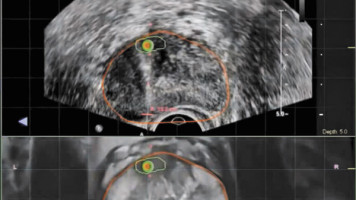RNA Detection May Provide A More Accurate Test For Prostate Cancer
A study on non-coding RNA (Ribonucleic Acid) from prostate cancer patients has identified a series of new prostate cancer markers which can be found in urine. Combining these RNA biomarkers into a single test can potentially open the door for simple, accurate non-invasive testing for prostate cancer. This was the conclusion of a German study conducted by Friedemann Horn, a professor in the University of Leipzig and the Fraunhofer Institute for Cell Therapy and Immunology IZI, and Manfred Wirth, a professor in the University of Dresden. Their findings were presented at the European Association of Urology Congress in Munich, Germany.
Current tests for prostate cancer, such as the PSA and PCA3 tests, are not particularly accurate, leading to a high level of missed cancers or produce false positives. The researchers behind the new study have identified a series of non-coding RNA molecules that could potentially be combined into a single urine test to detect prostate cancer. Up until recently, it was believed that many RNAs that didn’t help in producing proteins – called non-coding RNAs – simply had no particular function.
“This is early work, but it is already showing results. This is a new approach to developing diagnostic tests, and comes from applying real basic science to a practical clinical problem. Given that our initial results show a high specificity for prostate cancer in urine tests, the prospects are good that we will be able to translate this into a better test for prostate cancer.”
–Dr. Manfred Wirth
For their study, researchers analyzed biopsy samples from 64 prostate cancer patients, analyzing 200 million RNA sequences from each sample. RNA cancer biomarkers then validated the presence of 2,000 genes that appear in cancer patients, but not healthy controls, verifying them in 256 samples as being detectable in urine. Some of these sequences were for non-coding RNAs that showed better specificity and sensitivity than established prostate markers.
Researchers are now developing a highly specific and sensitive urine test for the early diagnosis of prostate cancer. The test will use a combination of biomarkers rather than just a single one. “We have several good candidate biomarkers, however we are aiming to design a test which utilizes a combination of biomarkers,” Wirth said. “This will give significantly better specificity than existing tests. Our work on RNAs is allowing us to design a completely new kind of prostate cancer test.”
The study is part of a project called RIBOLUTION and funded by the Fraunhofer Future Foundation whose goal is to identify new RNA biomarkers to develop novel diagnostic tests.






